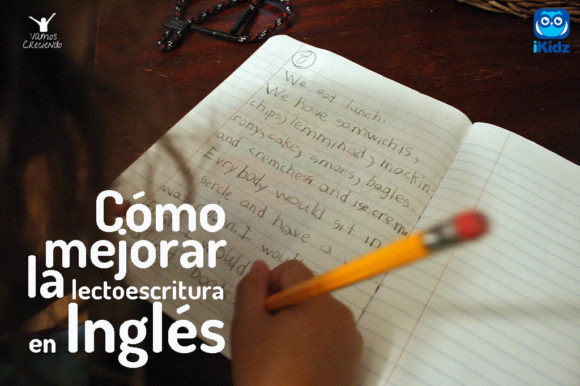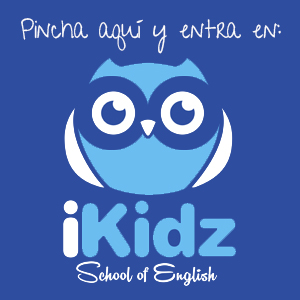
photo credit: woodleywonderworks extra credit via photopin (license)
What happens when you have not worked since childhood education literacy as it should? How can we make our students write correctly in English?
These are questions that many parents and teachers make me. Most schools use methods such as Jolly Phonics phonics to teach their students, but there are schools that completely forget this competition and, logically, When students arrive at primary encounter a serious problem: students do not know the English phonetics and literally write what they hear.
The problem is that once you are immersed in the maelstrom of contents, exams, duties, etc., representing primary, it is almost impossible to spend time working phonetics as we should. What can we do, then, to get our kids write and read correctly in English?
- Reading a lot!
As for improving reading in Castilian, English should read, read and read. The only way is to read every day a little bit with the kids and go correcting them.
If you speak English, please get to read them. In these two articles I wrote long time, I left 44 books to learn English.
Although you may believe that some are very simple books for kids in primary, my recommendation is to start by facilitos books, complicating reading and go depending on how it evolves the small. If we start with something too complicated it will demotivate and lose interest.
Once they go improving, You can go buy more complicated books. For me personally I really like collections Usborne.
If you do not speak English, You can use websites where they can read on their own. In this article I left 10 web pages to read English. In most of these web, children can listen to the books and then read.
Best of all, they are pages where the books are narrated by native!
- dictations.
Dictations have their detractors, but at this point, They are one of the best ways to work literacy.
You can make yourself, using any of the books that you read earlier, or use some web as Listen and Write. Here you have the listening organized by theme and, further, I say what level and how long.
A fun way to make dictations, I have ever tasted in class, are the Running Dictation.
This game has different variants, but I usually play as follows:
1No. I make two teams.
2º I give everyone a copy of the text that we will "dictate".
3No. I placed teams in two rows, and the text pasted on the wall at the other end of class.
4º To my signal, the first member of each team runs towards the text, memorizing a sentence, or everything you can, and runs back to his team. 5º should dictate the next member of your team who has memorized the piece, and so with all team members.
6º When they finish, let those who are themselves correct the text and see their mistakes.
In this web del British and this of Cambridge I tell how to play this game.
- interactive activities.
Most textbooks bring a CD with additional activities to work at home. These activities are great for, besides reinforcing the concepts seen in class, literacy work with the kids.
I leave a couple of links to resources offered by the Anaya publishing for primary students.
- Chips to work the spelling.
When we have not worked phonics at an early age, one of the ways to work the spelling is through repetition and practice those words that the kids are more complicated them.
In this article I wrote a few weeks ago, I left several chips to work the spelling of simple concepts like routines.
For the next week, I am preparing an article with chips, totally free, to work the spelling of concepts that the kids are working for 1st cycle primary. Stay tuned! 😉
I hope these resources and tricks help you to improve English literacy of your children or students.
Thanks for being there!
"Some books are tested, other devoured, very few chewed and digested ".
Sir Francis Bacon.
Tags: apps, learn English, Write in English, english, Literacy, read in English, Children, means, ICT


 Español
Español English
English Français
Français Deutsch
Deutsch 中文(简体)
中文(简体) Português
Português
